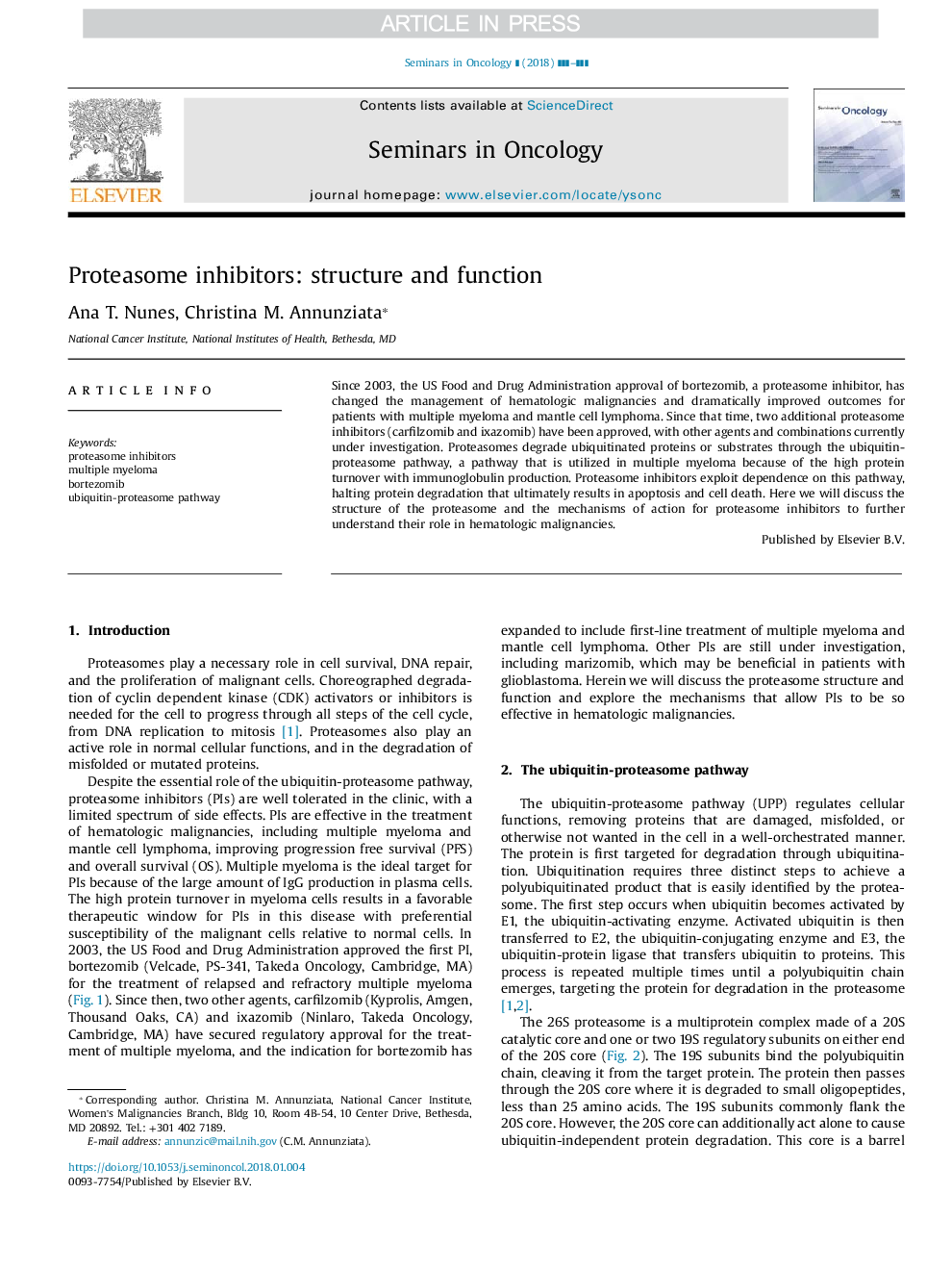| Article ID | Journal | Published Year | Pages | File Type |
|---|---|---|---|---|
| 8459700 | Seminars in Oncology | 2017 | 4 Pages |
Abstract
Since 2003, the US Food and Drug Administration approval of bortezomib, a proteasome inhibitor, has changed the management of hematologic malignancies and dramatically improved outcomes for patients with multiple myeloma and mantle cell lymphoma. Since that time, two additional proteasome inhibitors (carfilzomib and ixazomib) have been approved, with other agents and combinations currently under investigation. Proteasomes degrade ubiquitinated proteins or substrates through the ubiquitin-proteasome pathway, a pathway that is utilized in multiple myeloma because of the high protein turnover with immunoglobulin production. Proteasome inhibitors exploit dependence on this pathway, halting protein degradation that ultimately results in apoptosis and cell death. Here we will discuss the structure of the proteasome and the mechanisms of action for proteasome inhibitors to further understand their role in hematologic malignancies.
Related Topics
Life Sciences
Biochemistry, Genetics and Molecular Biology
Cancer Research
Authors
Ana T. Nunes, Christina M. Annunziata,
